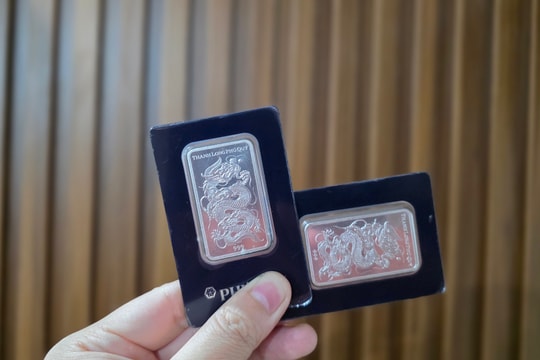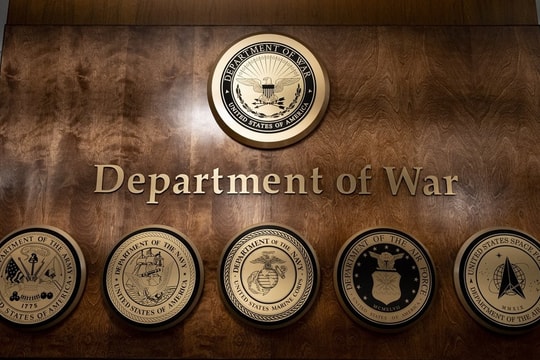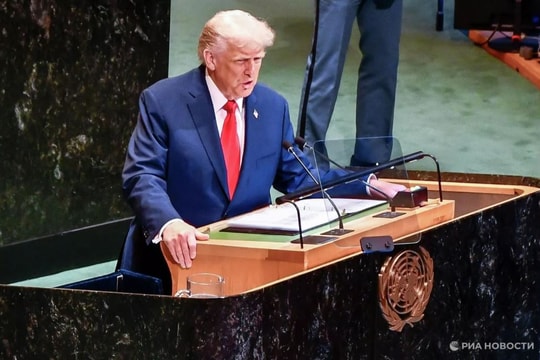Major General Le Van Cuong: Cutting aid to Pakistan, the US is "hitting itself with its own petard"
(Baonghean.vn) - President Donald Trump's criticism and announcement of cutting aid to Pakistan will put the US at a disadvantage in the fight against terrorism in the Afghanistan battlefield, as well as in security, financial and diplomatic policies.
Nghe An Electronic Newspaper had an interview with Associate Professor, Doctor, Major General Le Van Cuong - Former Director of the Institute of Strategy and Science, Ministry of Public Security on this issue.
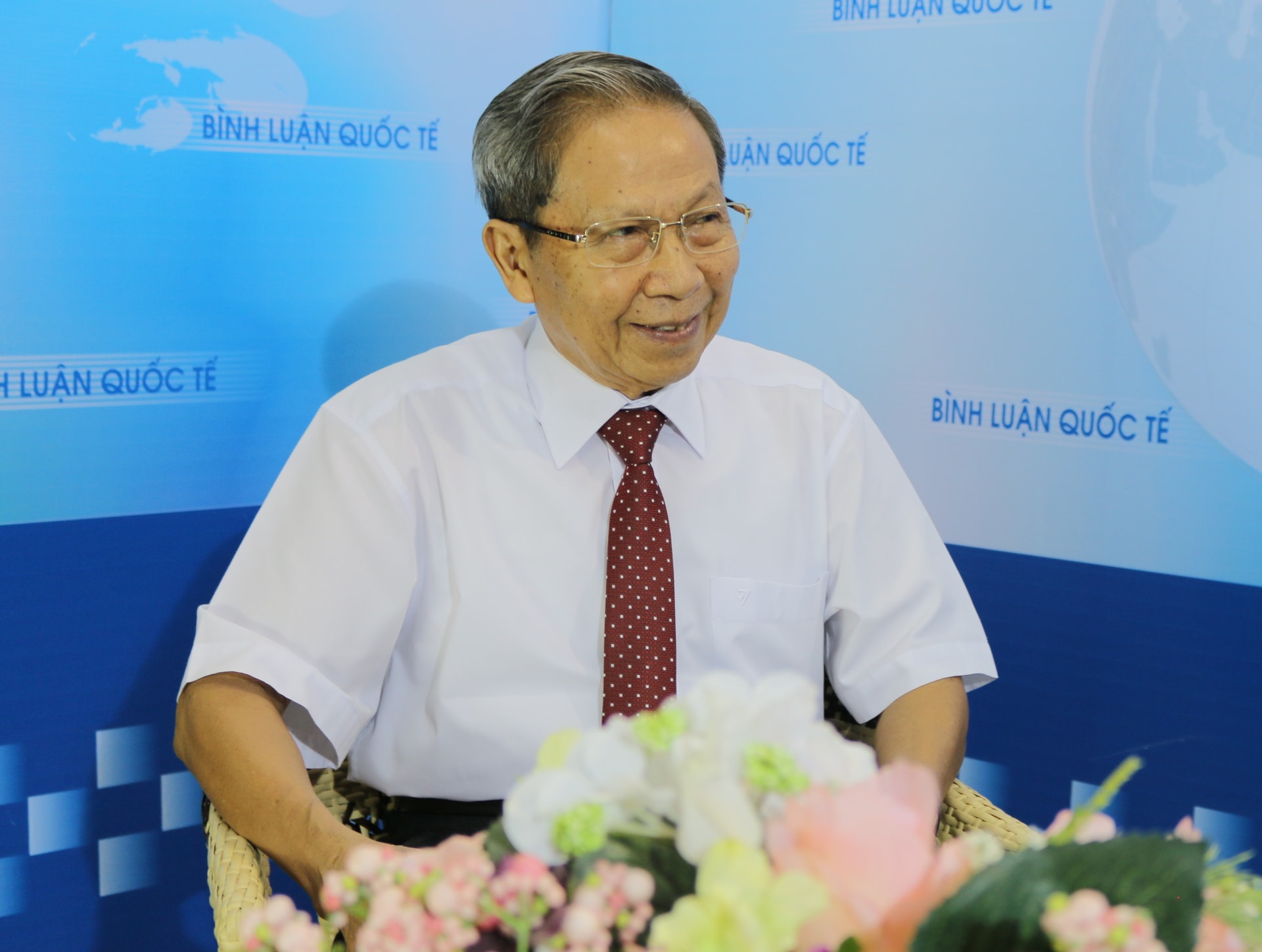 |
| Major General Le Van Cuong at the Nghe An Newspaper studio. Photo courtesy |
PV:How was the history of US-Pakistan relations shaped, General?
Major General Le Van Cuong: Pakistan is a Muslim country, separated from India since 1947. Until now, the relationship between Pakistan and India has never been warm. There have been many military conflicts between the two countries, causing millions of deaths.
At that time, while India relied on the former Soviet Union, Pakistan established an alliance with the United States. Thus, the relationship between Pakistan and the United States was formed during the Cold War period. Pakistan became a country of important geopolitical and strategic importance, where the two superpowers, the Soviet Union and the United States, competed for influence.
However, since the collapse of the Soviet Union in 1991, US-Pakistan relations began to crack. On the surface, the two countries still maintained an alliance, but in reality, they were no longer "interested".
It was in this context that China discovered Pakistan's important geopolitical position in the South Asian region, and immediately "intervened" in the middle of the US-Pakistan relationship.
In particular, since 2001, when the US launched its anti-terrorist campaign, Pakistan has become a secret confrontation between the US and China. In form, Pakistan is still an ally of the US, but it has both secretly and openly tightened its relationship with China. Pakistan has begun to be mainly influenced by China economically.
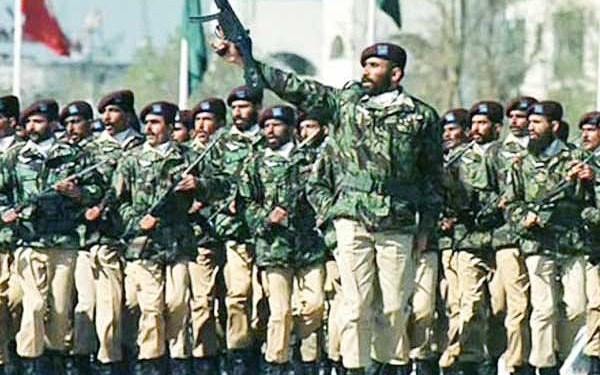 |
| Pakistan Army. Photo: Indian Defence Review |
PV:Were the previous presidents aware of Pakistan's "double-dealing" policy? If so, why were no tough measures taken against Pakistan, Major General?
Major General Le Van Cuong:In fact, previous US presidents such as Clinton and G. Bush have discovered that Pakistan has implemented this policy. In particular, during his 8 years in office, former US President Barack Obama has repeatedly criticized Pakistan's "two-facedness" in the fight against terrorism, especially against the Taliban insurgent group in neighboring Afghanistan, which the US has been supporting to suppress since 2001.
Even Barack Obama has had a clear attitude, asking Pakistan to end its support for the Taliban as well as other terrorist forces, typically the US special forces that killed terrorist leader Osama Bin Laden on Pakistani territory in May 2011.
For the US, this is a way to "remind" Pakistan that the US is ready to act and can act unilaterally to protect US interests.
However, common interests and concerns have forced both countries, despite being "on the surface but not satisfied" with each other, to put aside their grudges so that the relationship does not fall apart completely.
In addition, the US realized that in order to win the war against terrorism in Afghanistan, it absolutely had to use the "Pakistan card". Therefore, despite discovering Pakistan's "two-faced nature", no previous administration took any drastic measures.
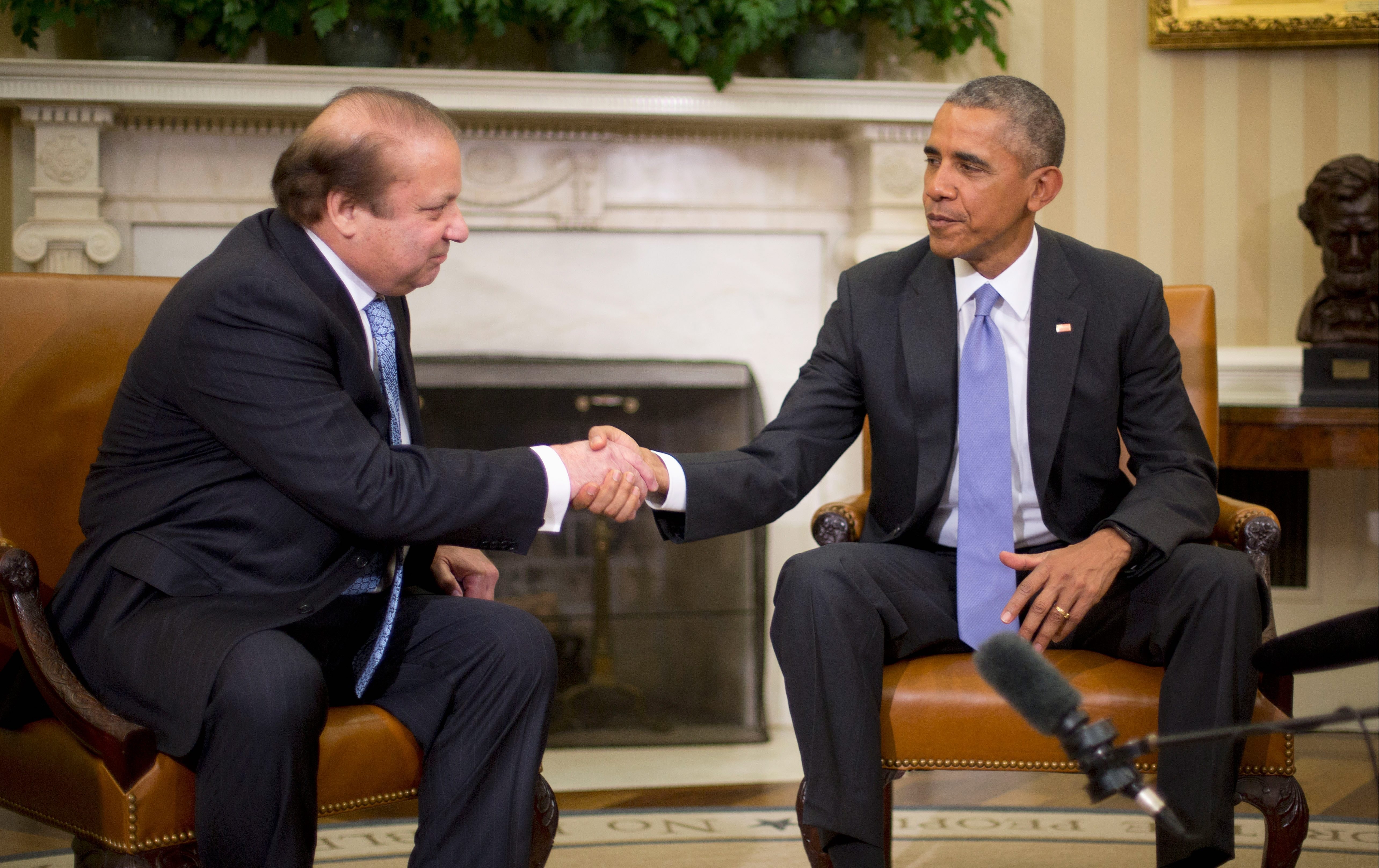 |
| Former US President Barack Obama and Pakistani Prime Minister Nawaz Sharif met in the Oval Office of the White House in Washington. Photo: Reuters |
PV:Who will be the losers, and who will be the beneficiaries in this "gamble", Major General?Can we predict the war on terrorism of the US and the North Atlantic Alliance (NATO) in Afghanistan in the coming time?
Major General Le Van Cuong:When the US-Pakistan relationship is on the brink of a cliff, India will be the one to suffer. Pakistan will vent its “anger” on India by creating tension in the bilateral relationship.
In contrast, China will become the "fisherman who benefits". Accordingly, China will open its arms to pull Pakistan towards itself. In other words, this is another failure of the US in the geopolitical region of Pakistan.
The Trump administration’s decision to cut aid to Pakistan will have a negative impact on the US and its NATO allies’ war on terror in Afghanistan, as Pakistan will certainly react harshly to the US.
In terms of form, in the future, Pakistan will still maintain its alliance with the US, continuing to declare that it will stand shoulder to shoulder with the international community in the fight against terrorism, but Pakistan will retaliate by more strongly and decisively supporting terrorist organizations such as the Taliban, Al-Qaeda, or IS in the Afghanistan battlefield, causing the Donald Trump administration to increasingly fall into a "quagmire".
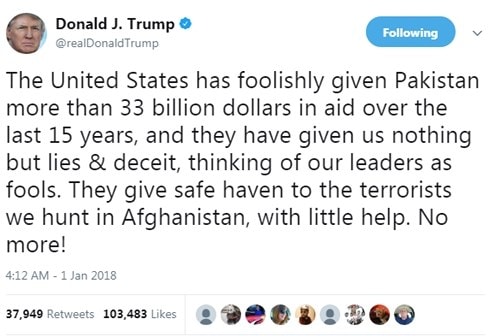 |
| In a comment posted on his Twitter account on the morning of January 1, US President Donald Trump said: "The US has foolishly given Pakistan more than $33 billion in aid over the past 15 years, and they have given us nothing but lies and deceit, treating our leaders like fools." Photo: Twitter |
Thus, the US will be the country that suffers the most, "wasting people and money". At that time, to stabilize the situation in Afghanistan, the US may be forced to spend 10 times or more than the 255 million USD cut in aid to Pakistan. This is a disaster for the US. No one else but the US has created the "stick that hits its own back" scenario when it announced to cut aid to Pakistan.
In the current context, in all aspects, President Donald Trump has made the biggest strategic mistake in his first year in office, and it will certainly lead to consequences in terms of politics, security, finance and diplomacy. This mistake will certainly cause the Trump administration to suffer negative impacts in terms of politics, security, finance, politics and diplomacy.





